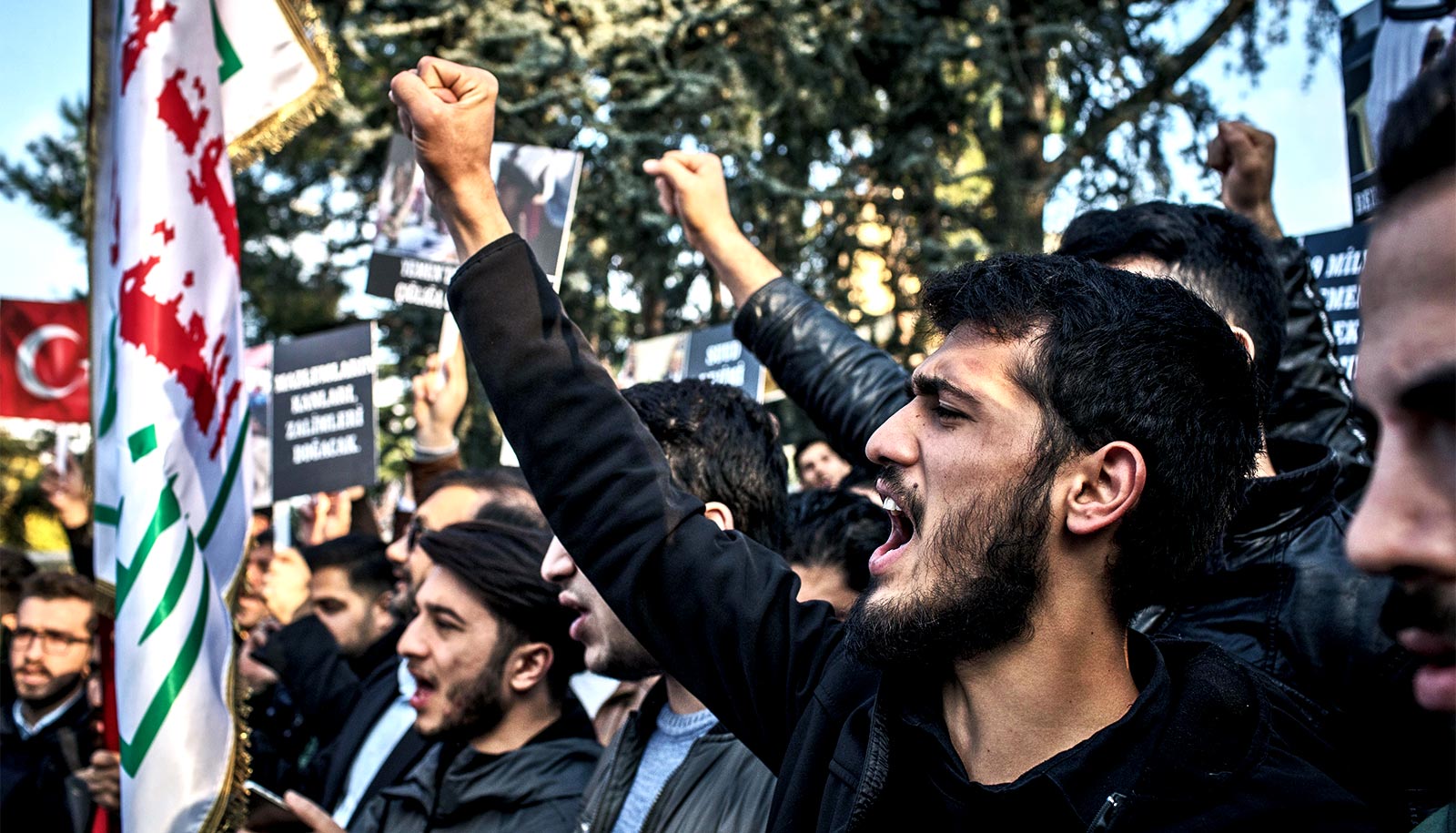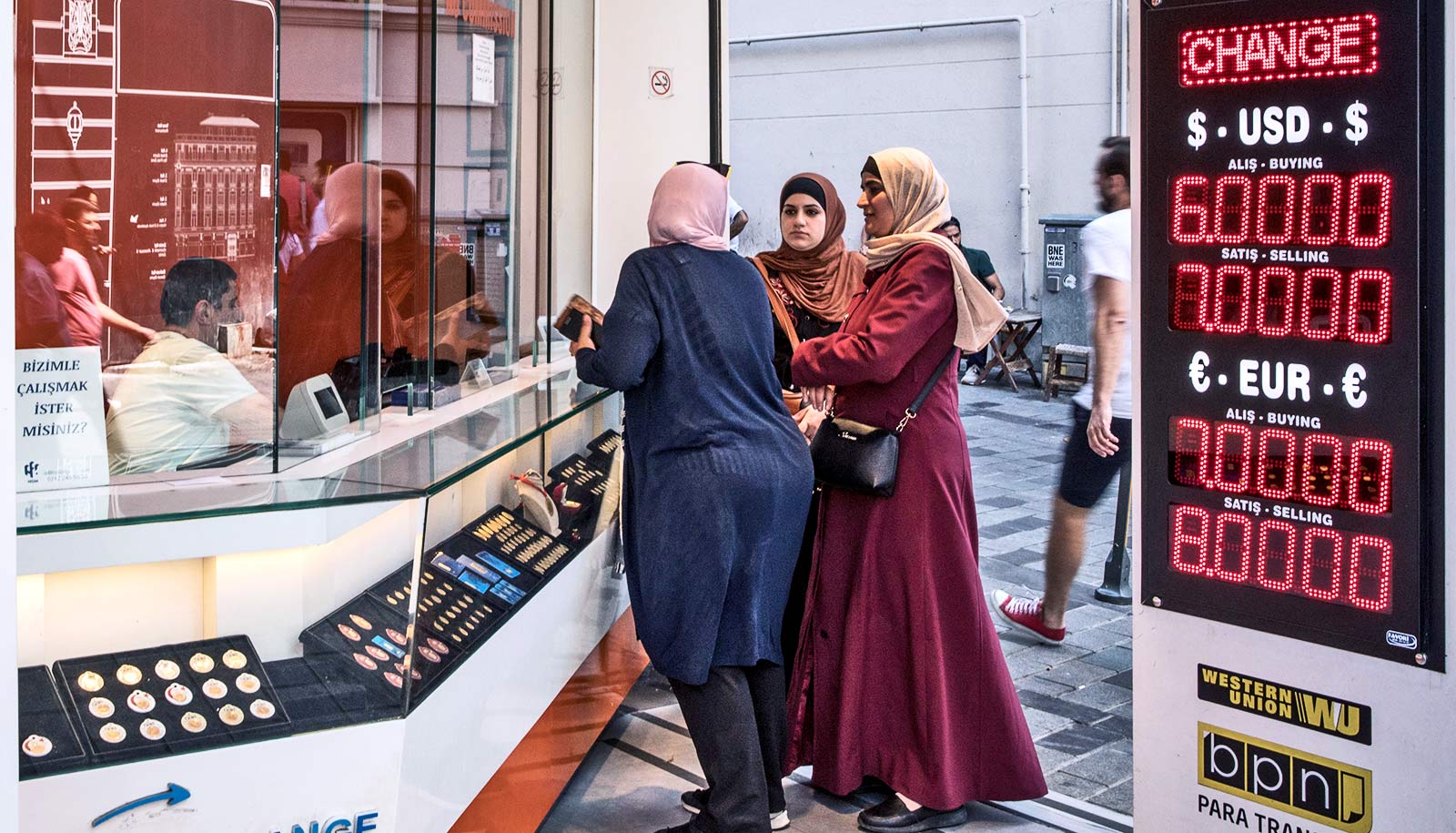While much attention has focused on the conflict between Iran and Saudi Arabia, one expert says there’s a less-noticed rivalry roiling the Middle East between Saudi Arabia and Turkey.
Nader Habibi, professor of the economics of the Middle East at Brandeis University, describes the Turkey-Saudi Arabia antagonism as a “cold war” with both countries working with groups and leaders in other countries to counter each other.
Here, Habibi, who is now part of the Crown Center for Middle East Studies, talks about tensions between Turkey and Saudi Arabia and what they portend for the Middle East:
How did tensions with Saudi Arabia start?
During the Arab Spring uprising in 2008, Turkey supported the Muslim Brotherhood as a political movement in various Arab countries. The leadership of Saudi Arabia is opposed to the Muslim Brotherhood. They see it as a threat to their own domestic stability. So that was a sort of an ideological reason for the tensions.
Things grew worse in 2017 when Saudi Arabia severed all ties with neighboring Qatar. Saudi Arabia accused Qatar of supporting the Muslim Brotherhood along with several other militant Islamist groups in the region.
Turkey then came to the aid of Qatar, transporting goods there that had been disrupted by Saudi Arabia-imposed sanctions. Turkey also increased its military cooperation with Qatar by increasing the number of troops it maintains in that country.
And last year, of course, the journalist Jamal Khashoggi was assassinated in the Saudi Consulate in Istanbul. Turkey played a major role in implicating Saudi Arabia in the murder.
Where are we seeing a proxy war between Turkey and Saudi Arabia emerge?
Libya. Turkey is supporting one side in the ongoing civil war while Saudi Arabia and its ally the United Arab Emirates (UAE) are supporting the other side.
The war has recently escalated and there have been threats and counter-threats between Turkey and the pro-Saudi leader in Libya, General Khalifa Haftar.
Sudan is another hotspot.
Omar Hassan al-Bashir, the dictator who had ruled for several decades, was ousted from power in April. He had been very friendly with Turkey, but now we see that the generals and military leaders who removed him are pro-Saudi. So Turkey is trying to maintain the influence that it had developed under al-Bashir.
Turkey had signed a number of economic agreements with al-Bashir, including an important one for the development of Suakin island as a tourist destination on the Red Sea. But the new military leaders are receiving significant aid from Saudi Arabia and they are driving a hard bargain with Turkey, even putting some projects on hold.
For Turkey to even be playing this role in other countries is a major shift in its foreign policy.
Yes. Historically, Turkey was primarily interested in being perceived as a European country. It had little interest in expanding relations with Middle Eastern countries. Then in 2003, Recep Tayyip Erdogan came to power.
His goal was to maximize Turkey’s soft power in the Middle East and also expand its economic relations with the region. He wanted Turkey to be a regional power and influence both regional and domestic politics in the Arab world.
What are the economic consequences of the conflict with Saudi Arabia for Turkey?
Since the Qatar crisis, there’s been a significant decline in trade between Turkey and Saudi Arabia and the UAE and also a decline in investment in Turkey from these countries.
This hasn’t been good for Turkey because its economy is already weak. It’s been recovering from a downturn in 2018, but now economists anticipate that it might go back into another recession later this year.
You’ve also written about the schisms in the Gulf Cooperation Council (GCC), an economic alliance between most of the Arab states in the Persian Gulf.
The GCC had already been rife with factionalism and internal divisions when Saudi Arabia and the UAE cut ties with Qatar. This has caused a strong internal division in GCC which has become a major setback for all the previous efforts toward economic and political coordination.
This alliance has survived since 1981, but it now looks like it’s not going to be really functional moving forward.
Any predictions where this is all headed?
The conflict between Saudi Arabia and Turkey will make it more difficult for both sides to achieve their regional goals. Turkey’s efforts to play a leadership role in the Islamic world or to strengthen its economic relations with the rest of the Arab world are likely to be blocked by Saudi Arabia.
Similarly, Saudi Arabia’s efforts to reunite the GCC countries and position itself as its leader will be frustrated by Turkey’s support for nations that defy Saudi Arabia. This divide will also weaken the bargaining position of both sides with Iran and other regional rivals.
Source: Brandeis University

